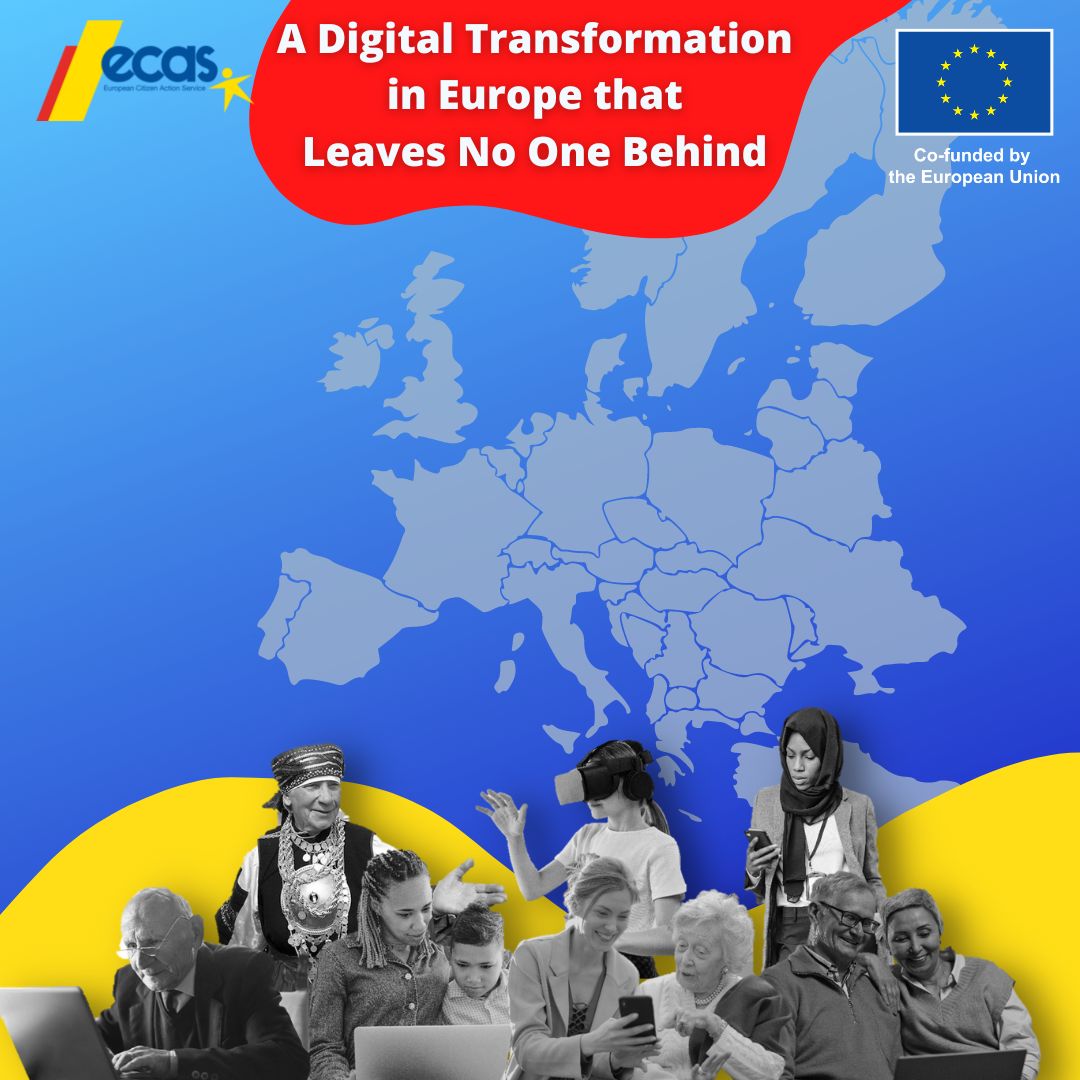May 2022 – December 2023
Digital Transformation
The digital transformation process in Europe will shape the way we live in the 21st century. Yet, the question of how this transformation will look should lie in our hands. ECAS believes that digital inclusion of citizens and a wide range of civil society actors in this process is key.

The digital transformation process in Europe will shape the way we live in the 21st century. Yet, the question of how this transformation will look should lie in our hands. ECAS believes that digital inclusion of citizens and a wide range of civil society actors in this process is key.
Digital inclusion is about making sure that citizens all over Europe can access and use information and communication technologies on an equal footing. However, where access and use are not possible, digital inclusion also means ensuring that complementary methods are available to people, for example, those with disability, seniors, those from disadvantaged groups, and more. The challenges of digital inclusion can impact many aspects of societal life – including political participation, and ECAS believes that equal access to the online world must be provided to every citizen throughout the Union.
Through its work under the framework of the Civil Society Convention’s Digital Transformation Cluster ECAS consulted a variety of organisations across Europe on this topic and gathered insightful knowledge on how to make digital inclusion a reality. ECAS has decided to bring this consultation process further and is now going to 10 different EU member states to share this knowledge and to gather more local opinions on EU digital policies. By 2024, ECAS strives to develop Digital Inclusion Guidelines that will take stock of the consultations and include citizens’, CSOs’ and other stakeholders’ recommendations on how to make Europe’s digital age truly fit for all.
This activity is under the Operating Grant framework contract EURECA – co-funded by the European Commission, Citizens, Equality, Rights and Values (CERV) programme
May 2022 – December 2023
Organise events on Digital Transformation in 10 Member States (five in 2022 and five in 2023) to:
Creation of the the Digital Inclusion Guidelines that will include the results of the discussions and consultations.
Advocacy at EU level on how to achieve digital inclusion in Europe.